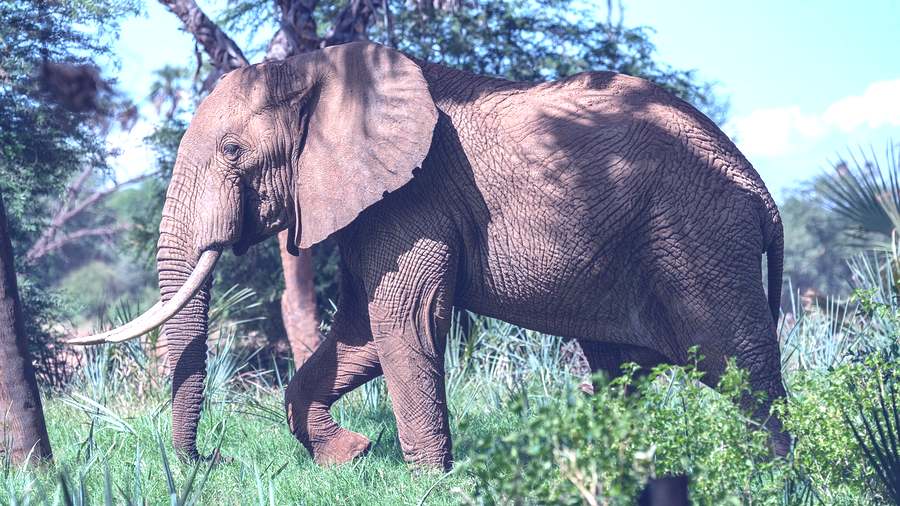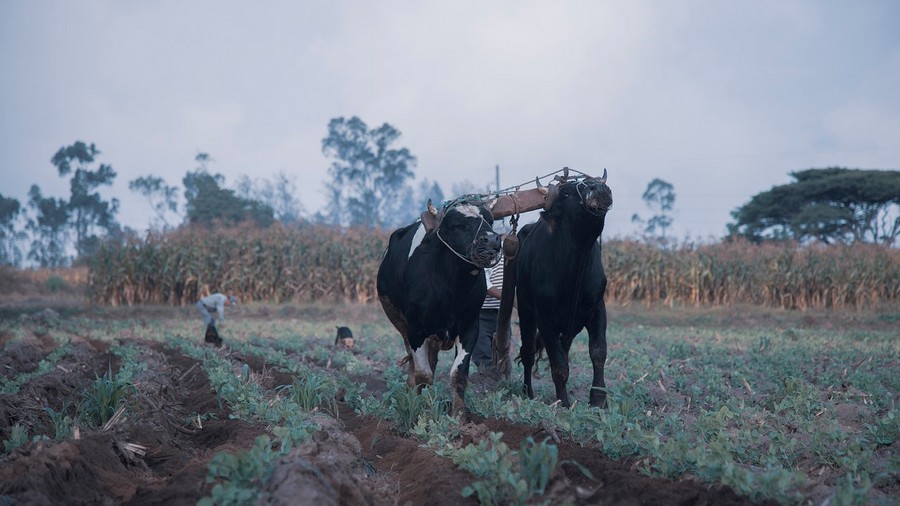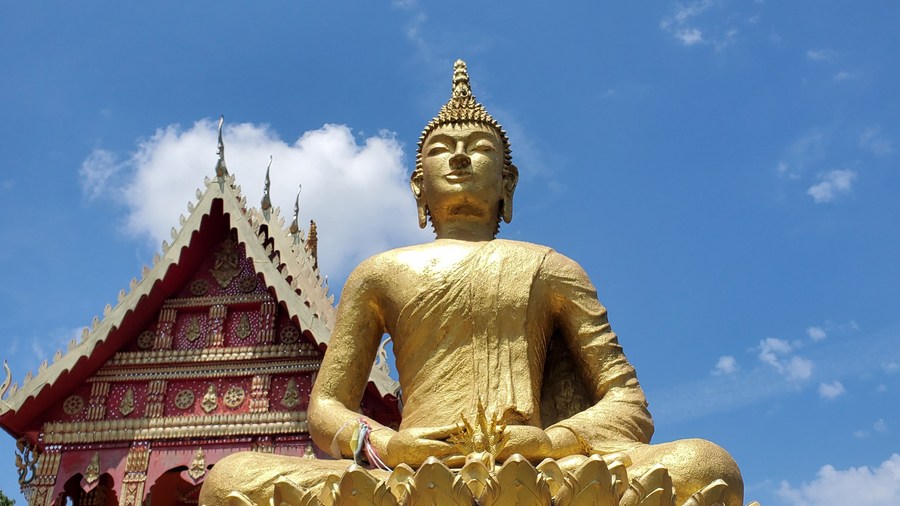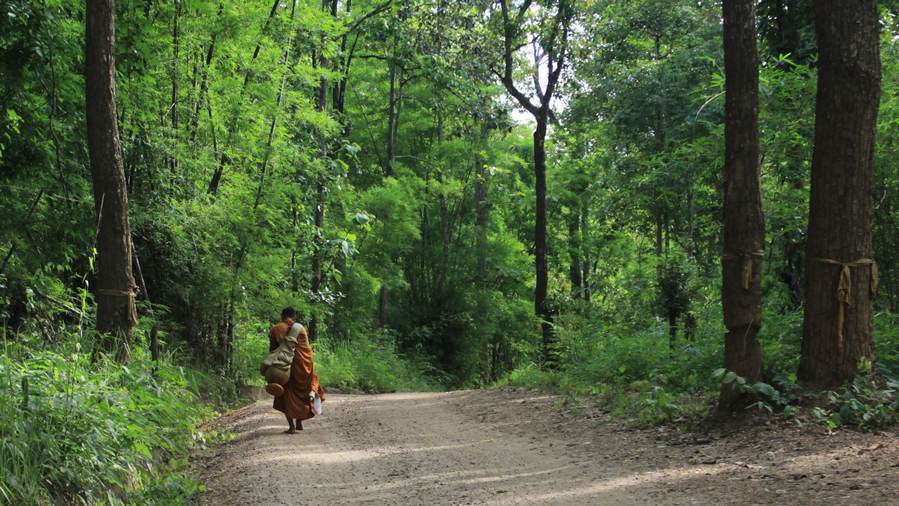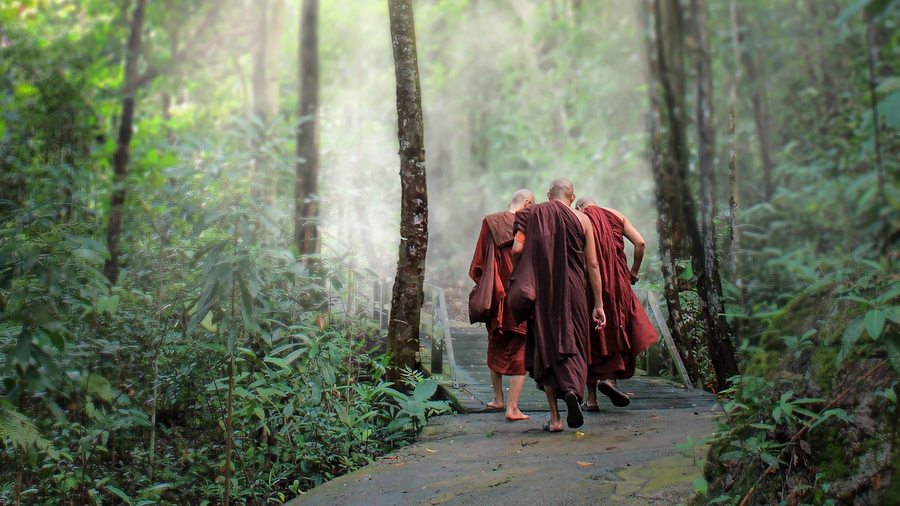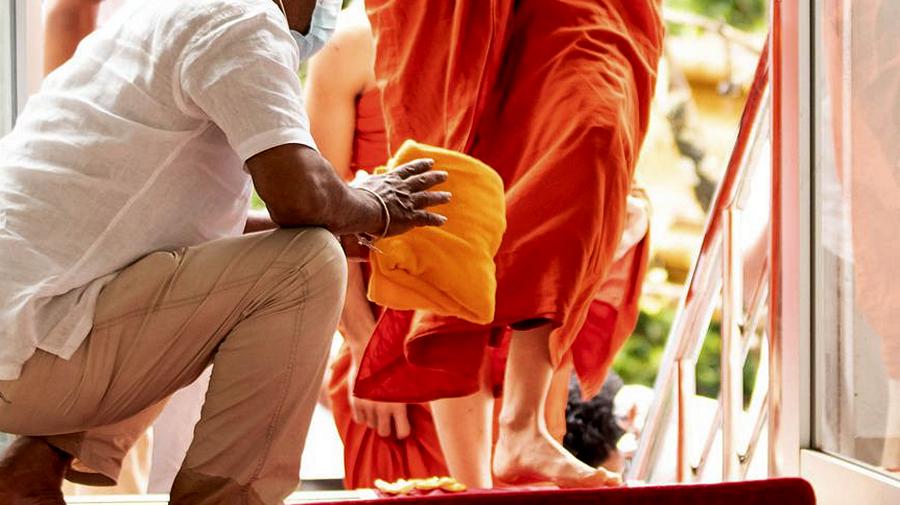[Note: We can find the context for these verses in the Middle Length Discourses sutta MN 82 On Raṭṭhapāla. If you have time, it is a wonderful story and helps to illuminate the verses.]
Look at the image beautified,
a heap of festering wounds, shored up:
ill, but the object
of many resolves,
where there is nothing
lasting or sure.
Look at the form beautified
with earrings & gems:
a skeleton wrapped in skin,
made attractive with clothes.
Feet reddened with henna,
a face smeared with powder:
enough to deceive a fool,
but not a seeker for the further shore.
Hair plaited in eight pleats,
eyes smeared with unguent:
enough to deceive a fool,
but not a seeker for the further shore.
Like a newly painted unguent pot—
a putrid body adorned:
enough to deceive a fool,
but not a seeker for the further shore.
The hunter set out the snares,
but the deer didn’t go near the trap.
Having eaten the bait,
we go,
leaving the hunters
to weep.
The hunter’s snares are broken;
the deer didn’t go near the trap.
Having eaten the bait,
we go,
leaving the hunters
to grieve.
* * *
I see in the world
people with wealth
who, from delusion,
don’t make a gift
of the treasure they’ve gained.
Greedy, they stash it away,
hoping for even more
sensual pleasures.
A king who, by force,
has conquered the world
and rules over the earth
to the edge of the sea,
dissatisfied with the ocean’s near shore,
longs for the ocean’s
far shore as well.
Kings & others
—plenty of people—
go to death with craving
unabated. Unsated,
they leave the body behind,
having not had enough
of the world’s sensual pleasures.
One’s relatives weep
& pull out their hair.
‘Oh woe, our loved one is dead,’ they cry.
Carrying him off,
wrapped in a piece of cloth,
they place him
on a pyre,
then set him on fire.
So he burns, poked with sticks,
in just one piece of cloth,
leaving all his possessions behind.
They are not shelters for one who has died—
not relatives,
friends,
or companions.
Heirs take over his wealth,
while the being goes on,
in line with his kamma.
No wealth at all
follows the dead one—
not children, wives,
dominion, or riches.
Long life
can’t be gotten with wealth,
nor aging
warded off with treasure.
The wise say this life
is next to nothing—
impermanent,
subject to change.
The rich & the poor
touch the touch of Death.
The foolish & wise
are touched by it, too.
But while fools lie as if slain by their folly,
the wise don’t tremble
when touched by the touch.
Thus the discernment by which
one attains to mastery,
is better than wealth—
for those who haven’t reached mastery
go from existence to existence,
out of delusion,
doing bad deeds.
One goes to a womb
& to the next world,
falling into the wandering on
—one thing
after another—
while those of weak discernment,
trusting in one,
also go to a womb
& to the next world.
Just as an evil thief
caught at the break-in
is destroyed
by his own act,
so evil people
—after dying, in the next world—
are destroyed
by their own acts.
Sensual pleasures—
variegated,
enticing,
sweet—
in various ways disturb the mind.
Seeing the drawbacks in sensual objects:
that’s why, O king, I went forth.
Just like fruits, people fall
—young & old—
at the break-up of the body.
Knowing this, O king,
I went forth.
The contemplative life is better
for sure.
* * *
Out of conviction,
I went forth
equipped with the Victor’s message.
Blameless was my going-forth:
Debtless I eat my food.
Seeing sensuality as burning,
gold as a knife,
pain in the entry into the womb
& great danger in hells—
seeing this peril, I was then dismayed—
pierced (with dismay),
then calmed
on attaining the end of the effluents.
The Teacher has been served by me;
the Awakened One’s bidding,
done;
the heavy load, laid down;
the guide to becoming, uprooted.
And the goal for which I went forth
from home life into homelessness
I’ve reached:
the end
of all fetters.
Read this translation of Theragāthā 16.4 Raṭṭhapāla by Bhikkhu Ṭhanissaro on DhammaTalks.org.
Or read a different translation on SuttaCentral.net, or SuttaFriends.org. Or listen on SC-Voice.net. Or explore the Pali on DigitalPaliReader.online.
Or read a translation in Deutsch, Indonesian, Italiano, 日本語, Norsk, සිංහල, or Tiếng Việt. Learn how to find your language.




